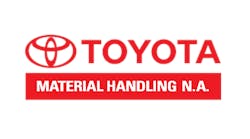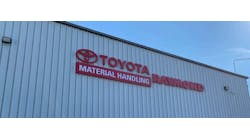Our November cover story addresses the industrial side of a relatively new phenomenon among product manufacturers: frugal engineering. Actually, it's this concept's name that's new. What it represents is as old as the wheel, and is more colorfully described by the label that found more common usage in pop culture: KISS, or Keep it Simple, Stupid.
Manufacturers of sophisticated technologies in many mature industries are studying emerging markets with great interest, hoping to find new buyers for their products. After doing their market study they bang heads with their engineers to see how they can redesign their product to make it less costly to produce and therefore lower in price. Nothing wrong with this approach. In fact we've seen it in the lift truck market with companies like Anuhi Heli, a Chinese OEM that is pursuing a niche in the U.S. market for bare-bones functionality at an economical price. Even the Nacco Material Handling Group is exploring new markets with its UTILEV trucks, described as "a no-nonsense, uncomplicated approach to material handling," in a range of IC counterbalance forklifts designed to meet the needs of light-to medium-duty operating environments.
Our cover story's author, Ron Giuntini, acknowledged to me that this concept works better in industrial markets than in consumer markets where big-ticket purchases are more of an emotional buy tied closely to the buyer's image. How many proud Yugo owners do you know?
On the industrial side, however, buyers are more than happy to wheel deals out of vendors. In fact this leads us to another mature concept that might also go back to the wheel: dickering. Material Handling & Logistics doesn't go that far back, but just for fun I thought I'd go into our archives to see if I could find an article that addressed frugal design concepts. I hit pay dirt—actually dust—in an issue of Material Handling Engineering dating back to April 1960 (MHE was MH&L's grandpa). In it I found an article titled "The High Cost of Free Engineering," which we posted to our web site. It addresses frugal from the technology user's perspective, profiling several types of buyer. These include "The Scatter-Shot Requisitioner," "The Engineering Free-Loader," "The Bargain Hunter," "The Purchasing Autocrat" and "The Panic Buyer."
The identity that I thought offered the best example of being frugal to a fault was "The Bargain Hunter." In the article, The Bargain Hunter takes on the identity of "Company C," which after deciding it needed a new handling system, had its engineers submit rough specifications to six possible suppliers for bids. Five followed the specs exactly. The sixth cut corners, taking exception to some of the requirements and underbidding its competitors. They were rewarded with the contract.
Company C was rewarded with initial savings—and then continued paying well over the difference in price through its attempts to get the performance its engineers originally planned. I love the author's concluding sentence: "Honestly now, how much do YOU add to the cost of material handling equipment?"
I called Bruce Pelynio, president-CEO of Heli Americas, to see if he had heard of this "Frugal Engineering" concept OEMs are adopting to pursue emerging markets. Knowing his company's presence in the U.S., I wasn't surprised by his answer.
"It's not just for developing markets but for relatively sophisticated markets like the U.S.," he said. "When you're not talking about a big box DC that's going 400 inches up with a man-up order picker, does a company really need the sophistication we're starting to see in some of the products out there? Engineering complexity for complexity's sake doesn't serve any purpose. At the same time, if it saves a dollar and costs three the model doesn't work."
Go to Giuntini's article and you'll learn the lesson John Deere did by making assumptions about the markets for frugal engineering. You won't have to pay their price, though.
Follow me on Twitter @TomAndel.


